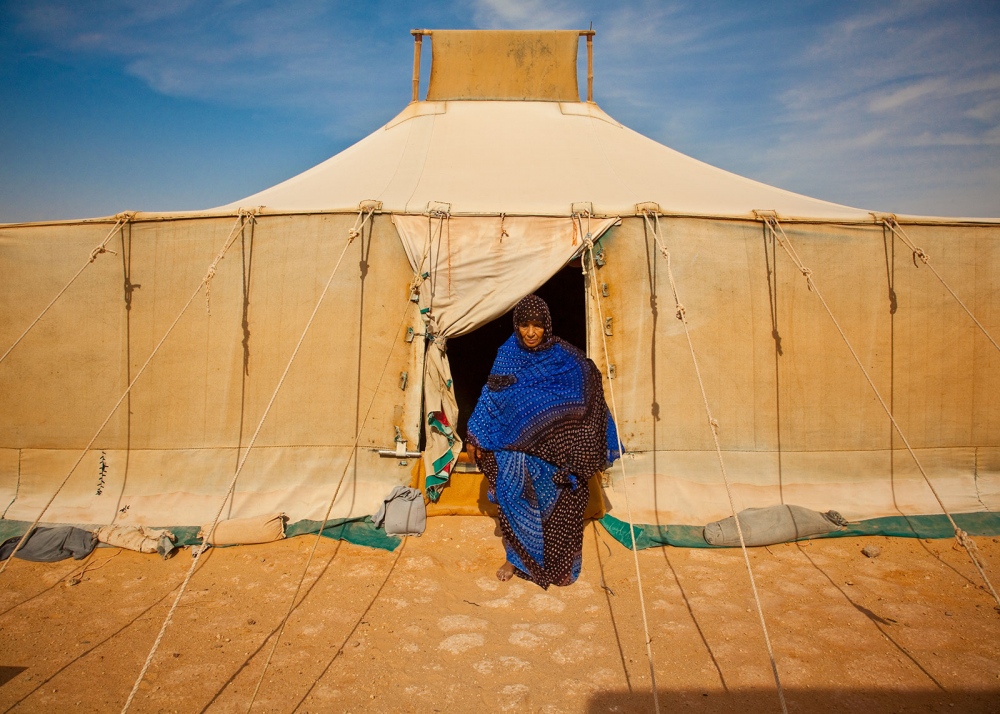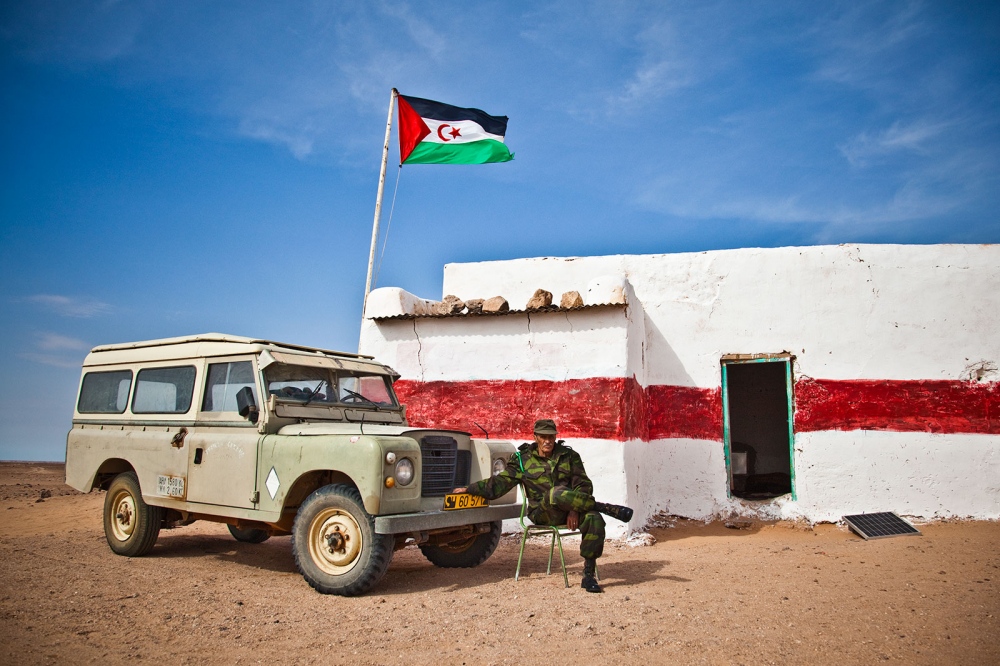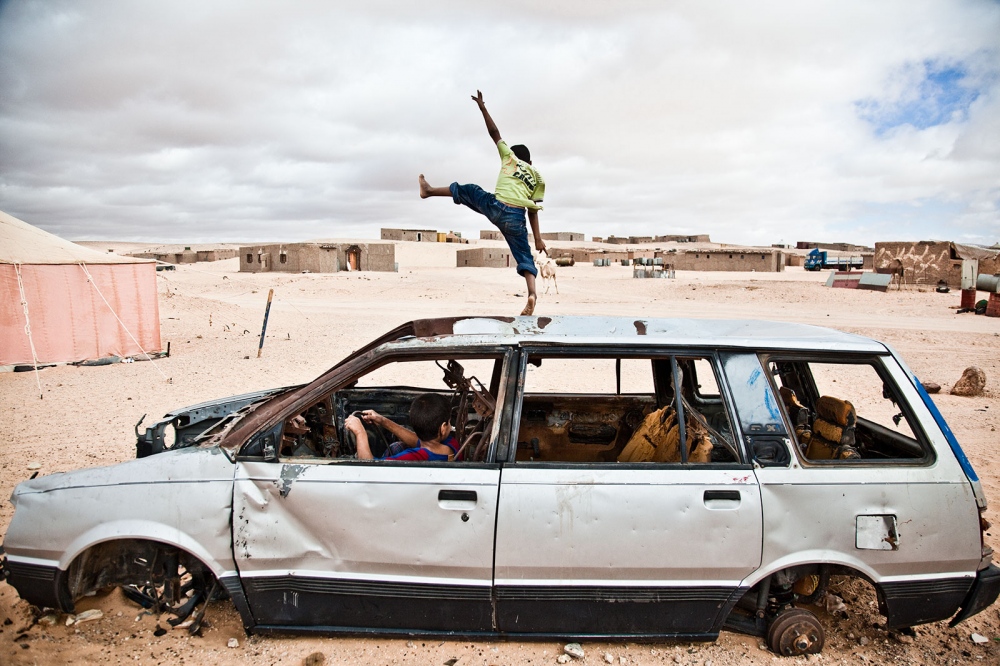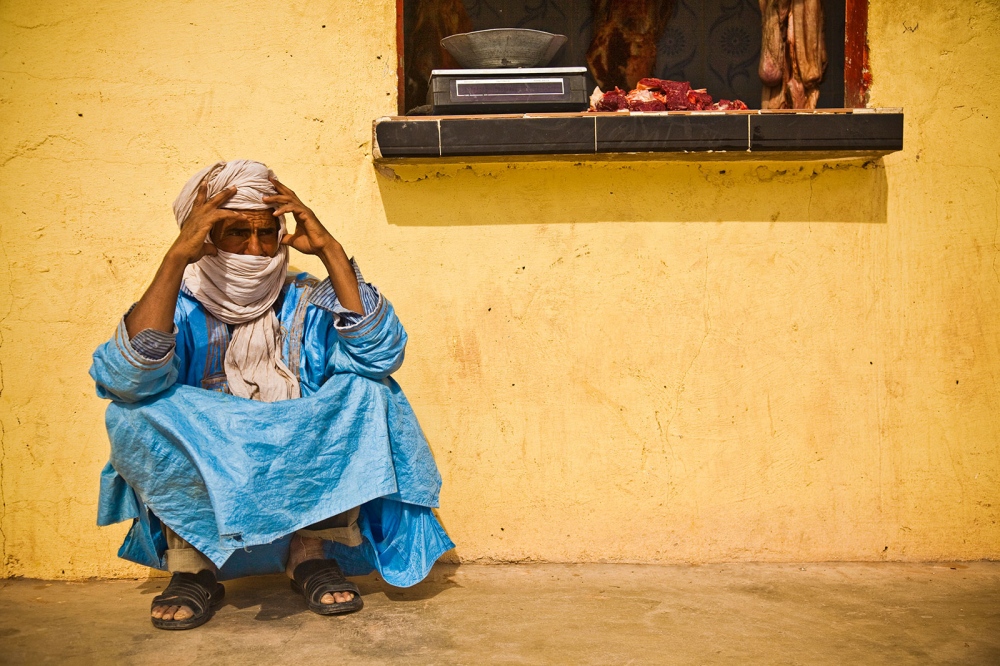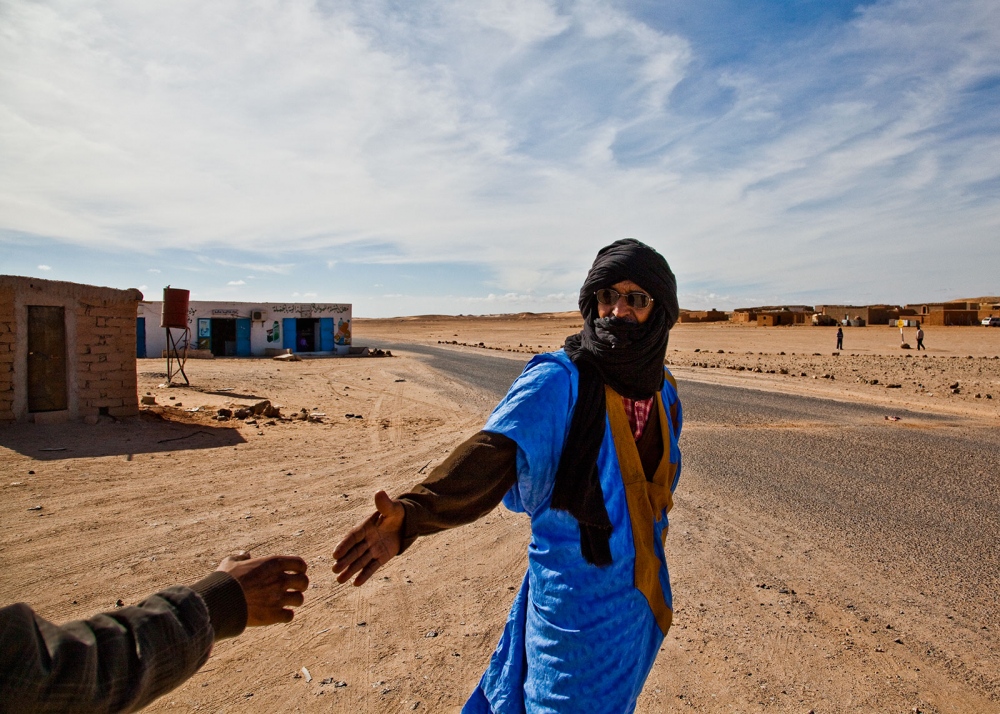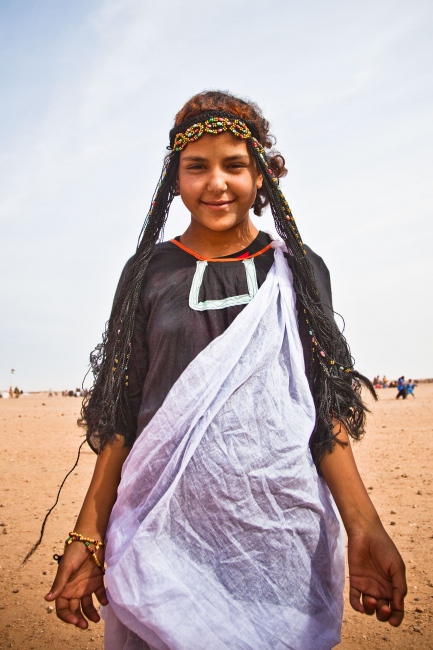(Arabic:صØراويون"Ž á¹£aḥrāwā«yÅ«n; Berber:Iseḥrawiyen; Moroccan Arabic: صØراوةṢeḥrawa).
In the barren desert landscape of Algerias southwesternmost corner - an area known as "The Devil´s Backyard" due to its harsh climate - there lies an enclave of refugee camps inhabited by apeople called the Saharawi, meaning "the people of Sahara". While the Saharawi people is originally a nomadic people and are found in various parts of the Sahara, they are also the original people of the state of Western Sahara. Today, however, most of Western Sahara is occupied by Morocco.
Following Moroccos "Green March"into Western Sahara in 1975, the majority of the Saharawi people were forced to flee, particularly due to Moroccan aerial bombardment, which included napalm and cluster bombs. Morocco then installed the world´s largest minefield and built a 2500-kilometre-long Berlinwall of the desert which cut through Western Sahara, making it the second longest wall in the world (after the Great Wall of China). This wall divided almost every Saharawi family. To this day, 40 years after the invasion, many families remain divided.
The UN resolution process has been at a stalemate for decades; in the Security Council France prevents investigations into human rights violations to be undertaken in Western Sahara; The EU exploits Western Saharan natural resources and undermines UN peace keeping efforts through fisheries-agreements with Morocco which are in violation with international law; the Moroccan government gives tax relief to anyone who will settle down in the occupied territories, while local Saharawis are being discriminated and violently abused; a wide range of multinational companies exploits Western Sahara´s resources, especially large oil companies such as KOSMOS Energy and Total, but also the phosphate resources and agricultural resources are being plundered. Western Sahara was never decolonised from Spain and remains today Africa´s last colony "“ both on paperand in practice.
From the Western world Western Sahara is experiencing a kind of realpolitik, in which Western governments prioritise geopolitical and economic interests over international law and human rights.
While this forgotten crisis continues to play out below the radar of international media, the hundreds of thousands refugees exiled in the Algerian desert have no other option than to wait and try their best to not lose all hope.

